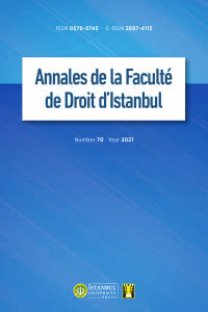Comparative Perspectives On Non-Punishment Of Victims Of Trafficking In Human Beings
Öz Each state party to the Council of Europe Convention on Action against Trafficking in Human Beings has a legal obligation, in accordance with the basic principles of its legal system, to “provide for the possibility of not imposing penalties on victims for their involvement in unlawful activities, to the extent that they have been compelled to do so” (Article 26). The Convention follows the United Nations Recommended Principles and Guidelines on Human Rights and Human Trafficking according to which “trafficked persons shall not be detained, charged or prosecuted for the illegality of their entry into or residence in countries of transit and destination, or for their involvement in unlawful activities to the extent that such involvement is a direct consequence of their situation as trafficked persons.” Non-punishment provision is also a part of EU Directive on preventing and combating trafficking in human beings and protecting its victims. This paper contains analysis of international legal framework concerning non-punishment provision and short overview of comparative legislation and the case law in the first ten state parties that have been evaluated by the Council of Europe Group of Experts on Action against Trafficking in Human Beings.Key words: trafficking in human beings, victim, non-punishment, non-prosecution, status related offence
Anahtar Kelimeler:
trafficking in human beings, victim, non-punishment, nonprosecution, status related offence
- ISSN: 0578-9745
- Yayın Aralığı: Yılda 2 Sayı
- Başlangıç: 1951
- Yayıncı: İstanbul Üniversitesi
Sayıdaki Diğer Makaleler
New Procedural Rules Of The Turkish Commercial Code
La Luttre Contre Les Operations D’inities: Double Protection En France
Comparative Perspectives On Non-Punishment Of Victims Of Trafficking In Human Beings
Tuba TOPÇUOĞLU, Manuel P. EİSNER, Denis RİBEAUD
Croatian Property Law After Eu Accession – Adjustment of property law to EU market freedoms –
Criminological Research and Education in Croatia
Croatia Constitutional Reforms Related to the Accession to the European Union
